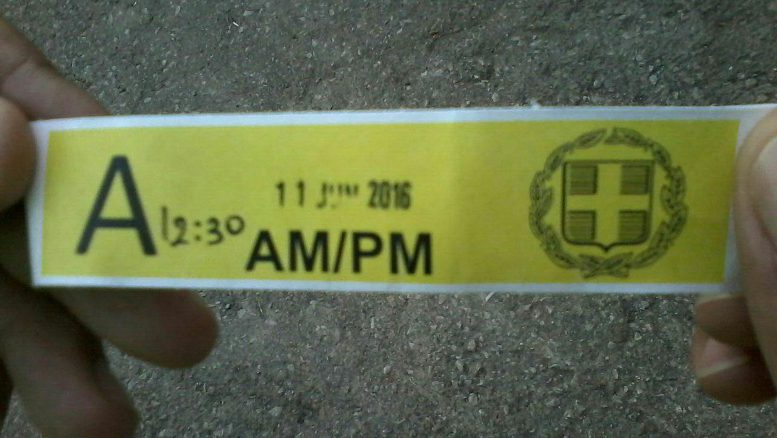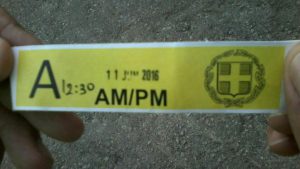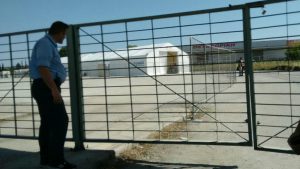The pre-registration process by EASO, UNHCR and the Greek state has finally started. One of the announced six pre-registration hubs is located at the Regional Asylum Office in the industrial outskirts of Thessaloniki. Refugees are brought to the hub from the camps and “processed” within 30 minutes. The idea of processing human beings is reflected in the whole setting of the registration process.
Moving Europe documented the dire conditions in the camps which are located in industrial zones, remote areas and uninhabited regions. The practise of keeping refugees away from society and out of public attention is reflected throughout the pre-registration process. Refugee are moved back and forth from one industrial area to the next: from the places they are forced to live to the governmental identification and registration hubs – all of this happens shut out of any societal and human reality. The experience appears like the trading of goods that takes place in this area: being distributed and delivered within these industrial areas by dozens of trucks passing the hub.
Yet, the operating staff – from NGOs, EASO and UNHCR – seem to reflect little on the power they have over people’s lives who are treated like “caseloads”. In that manner, the operating staff is distributing bracelets to the refugees before the transfer to the hub. The bracelet shows the hour and the day of the transfer to pre-registration. One friend staying at Oreokastro camp commented on that: “I was supposed to wear that bracelet for four days. But I took it off. How can I go to the city with that bracelet? It is totally conspicuous and embarrassing.” Apparently the competent authorities and organizations do not keep in mind that the “caseloads” they “manage” are people – people that move and try to find some normality outside of the camp reality. Our friend L. continues: “This is used to mark cattle, it’s put into their ears. Thank God that they haven’t pierced our ears!”
A lot of hope is connected to the pre-registration process, but at the same time a lot of distrust towards the authorities. People have been disappointed by broken promises too many times already. It further remains questionable whether pre-registration will actually accelerate the procedures to meet the rights and the needs of those stuck. The options available for the people stuck are limited and besides family reunification, not very promising: Relocation and asylum in Greece are not viable solutions for the majority. People need to go to places where they can build their own future. This is probably why IOM offers registration for ‚voluntary returns‘ inside these hubs as well.
It appears that the pre-registration procedure has two main goals: to count the refuges to better control them and to keep people quiet by manufacturing bureaucratic procedures that raise hopes for something to change soon.
- The pre-registration bracelet of a friend
- The pre-registration hub in the industrial zone of Thessaloniki



